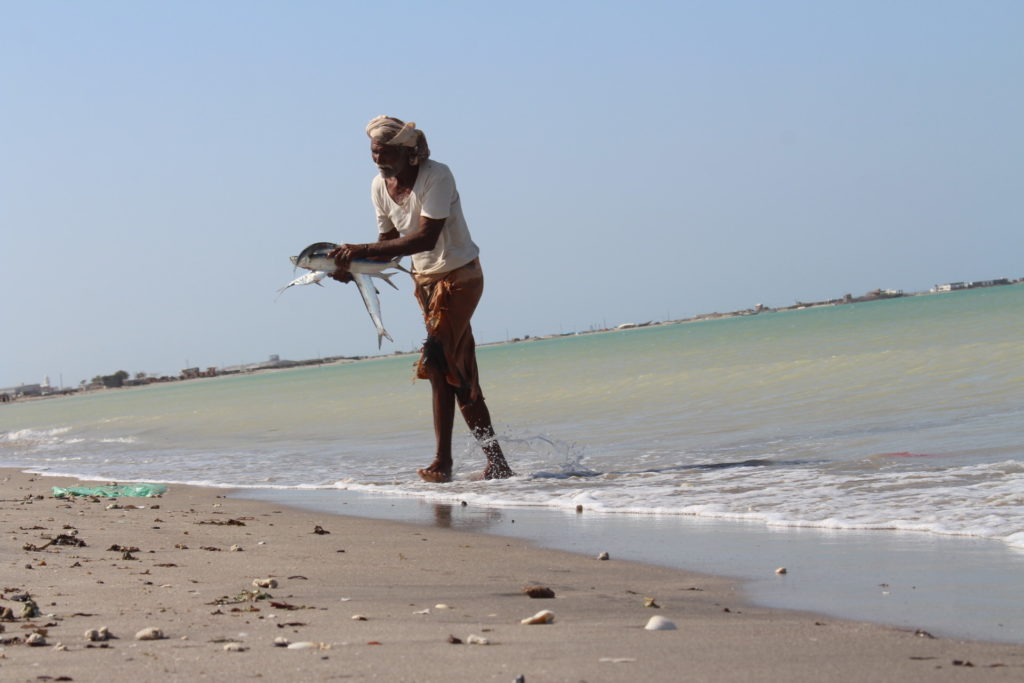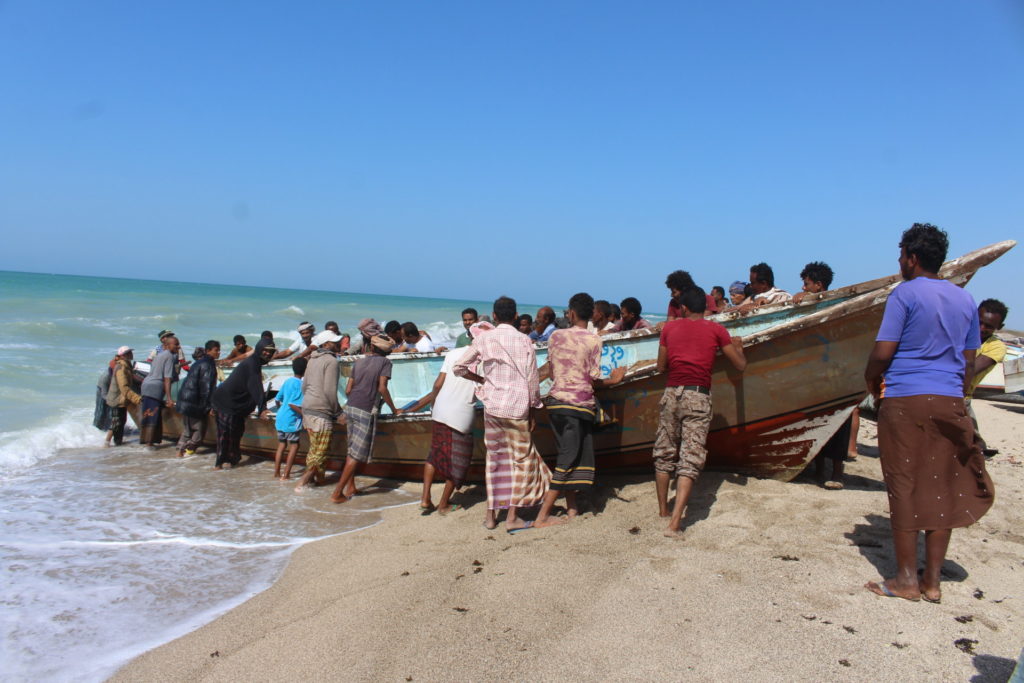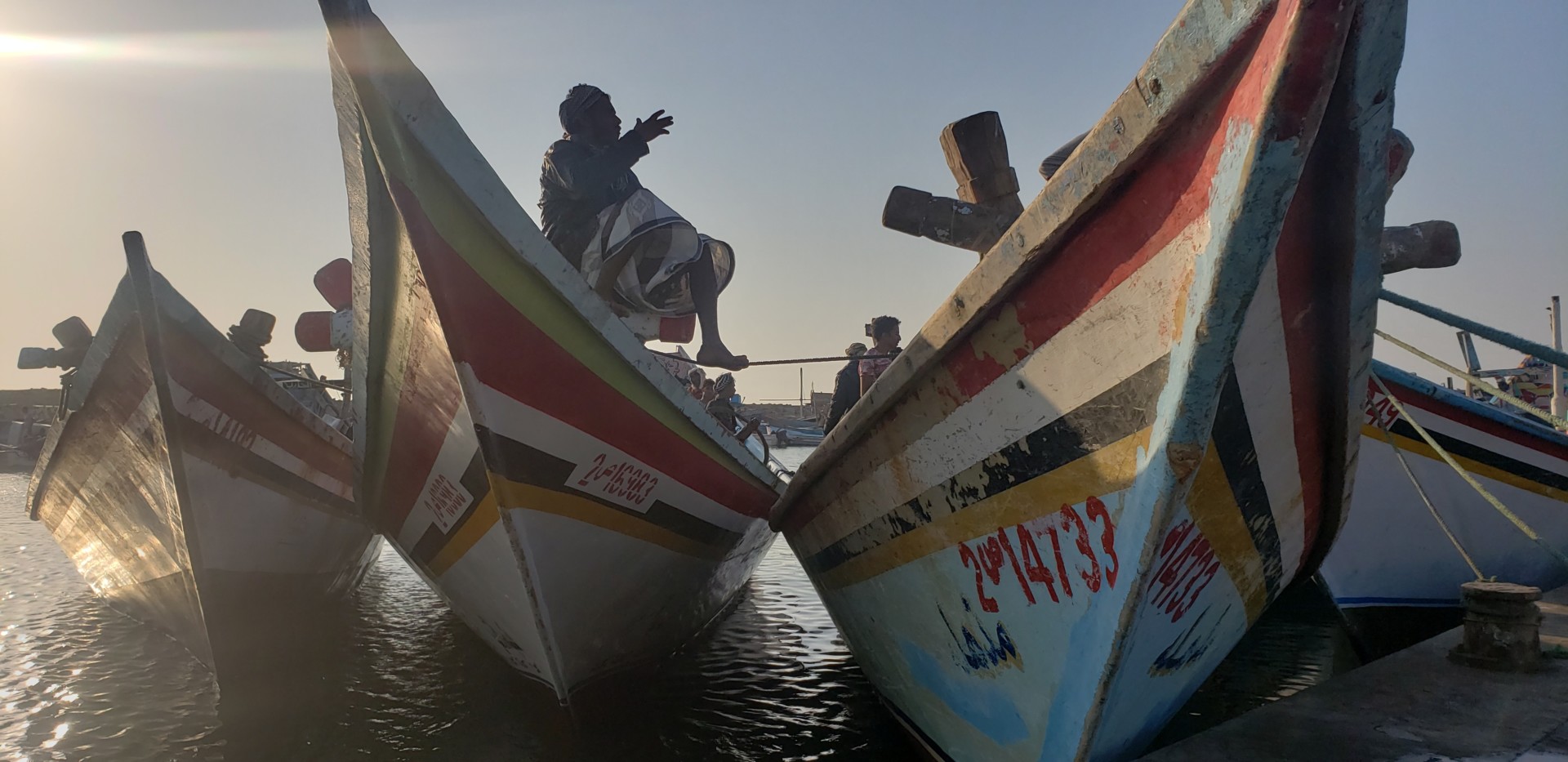Nothing about Yemen’s port city of Al Hudaydah is as it used to be. What was once the country’s third most populous urban center and a thriving fishing town is today described by locals as a “sad ghost town.” Al Hudaydah still boasts the presence of mostly fishermen and their families, but they can no longer rely on the sea for sustenance. The country’s ongoing six-year war and the combination of the Saudi-led coalition and the Iran-backed al-Houthi rebels has left the people of Al Hudaydah at the edge of hunger and despair, their suffering mostly unreported due to an ongoing media blackout.
“We cannot enter the sea and fish to make a living like we used to before the war,” 35-year-old fisherman Abu Suleiman — not his real name — told Newlines on condition of anonymity out of fear of retribution. “If you do, you risk being hit from land or air, or you risk detonating a mine in the sea.”
Government forces and al-Houthi rebels have been fighting over control of Al Hudaydah since the start of the war. The strategic coastal city has three major ports and has the capacity to receive up to 75% of Yemen’s imports, as it used to before the war. The warring sides have maintained a fragile truce since the United Nations brokered a resolution in Stockholm, Sweden, in December 2018. But the city remains under the control of al-Houthi rebels along with its ports of Al Hudaydah, Sleif, and Ras Isa, where the abandoned oil tanker SAFER is moored, posing a potential environmental disaster.
Fishing was once Yemen’s second largest economic sector after oil, producing about 400,000 tons of seafood annually, according to government reports. The industry provided a livelihood for over 2.5 million Yemenis who lived along the Red Sea coast, many of them “old-styled” fishermen supplying a once-thriving industry that included canneries, factories, and fish export businesses.
Less than one in five fishermen continue to fish today, according to local activists, and they do so at their peril because “the alternative is to starve.”
“Many have lost their life … and some have been detained (by al-Houthi rebels) for continuing to fish,” one underground activist in Al Hudaydah told Newlines on condition of anonymity.
According to a Norwegian council for refugees, there have been at least 334 fishermen killed or injured since 2015, when the war began.
Asked about his thoughts on the impending environmental disaster along the shoreline, one fisherman shrugged and said: “We’re already in a disaster. We haven’t been able to work in six years! We’re denied the ability to fish whether SAFER sinks or not. How much worse would a SAFER (oil spill) be?”
Another fisherman spoke about his family’s difficult choices after losing the only livelihood he and many around him have relied on for generations. Like most families in Al Hudaydah, his family is large and young. During the war they have been sustaining themselves on whatever humanitarian aid they could find, but that too has been sparse and unreliable.
This fisherman, who goes by the name Ahmad, told Newlines that he raised four sons and taught all of them to fish. But then the war started and fishing was banned, so “two of them joined the Houthis as fighters, and that’s the only work available in Yemen today,” he said. “One of my sons returned to us as a lifeless body. The other is still missing.”
This is not a unique story in Al Hudaydah, as the country reels from over $6.7 billion in economic losses. Many fishermen have given up their fishing nets and skiffs to join the war effort on various fronts, and many send their sons — as soon as they come of age — to do the same.
One fisherman captured the level of desperation that prevails because of the choice they are forced to make. “I grew exhausted searching for work. All the factories have been destroyed, and the merchants complain about their losses, and everything is closed in your face. It’s better I die in battle than die out of hunger at home,” he said. “Either I find sustenance for my children or I’m better off dead.”


The daily lives of the fishermen have become an “unbearable hell,” as described by one aid worker in Al Hudaydah. “Most of the fishermen have become dependent on the aid of organizations that barely cover their needs, barely provide a daily meal, and even that doesn’t come on a regular basis,” the aid worker told Newlines. “As for the children, none go to school anymore, and many resort to begging in the hopes of bringing back some food to their family.”
Asked about the difficulty of distributing aid to families, the aid worker lamented corruption and a local bureaucracy that hinder the distribution of much-needed help.
“You are not allowed to move around to distribute any aid except after acquiring dozens of permits. And even then, when you go distribute you could still be detained, and the aid can be stolen from you, and it doesn’t end up going to those that deserve it,” the aid worker said on condition of anonymity. “Our work is a daily risk. We may be better off (than the rest of the population) because we can eat, but our lives are in constant danger.”
An independent U.N. sanctions monitors report released in January accuses Yemen’s internationally-recognized government of money laundering and corruption “that adversely affected access to adequate food supplies.” The report also says that al-Houthi groups collected $1.8 billion in state revenue in the areas they control in2019 to help fund the war effort.
Further complicating the distribution of aid is the Trump Administration’s designation of the al-Houthi rebels as a foreign terrorist group, although the Biden Administration has green-lighted humanitarian transactions pending a review of the designation.
The extent of hunger and starvation-related deaths and child malnourishment are difficult to ascertain because the area has been in a media blackout for the duration of the war.
One local journalist abandoned the profession altogether. Recalling the incident that led to this decision, the former journalist explained, “The Houthis find the media’s camera and the journalist’s pen more dangerous to them than the barrel of a gun. I’ve been detained twice, once when I photographed the suffering of a fisherman’s family living in the street and sleeping rough in Al Hudaydah after they were evicted by their landlord for failure to pay rent due to loss of fishing work. Before I published the story and the photos, I found myself in jail and I had to sign a promissory note not to return to journalism.”
The fisherman, Suleiman, lamented his inability to support his extended family of 15, who barely find enough food for one meal a day. “It’s all just different ways of dying. And not being able to work and make a living — well, you just end up dying from hunger. Fishing is all I know,” he said.



